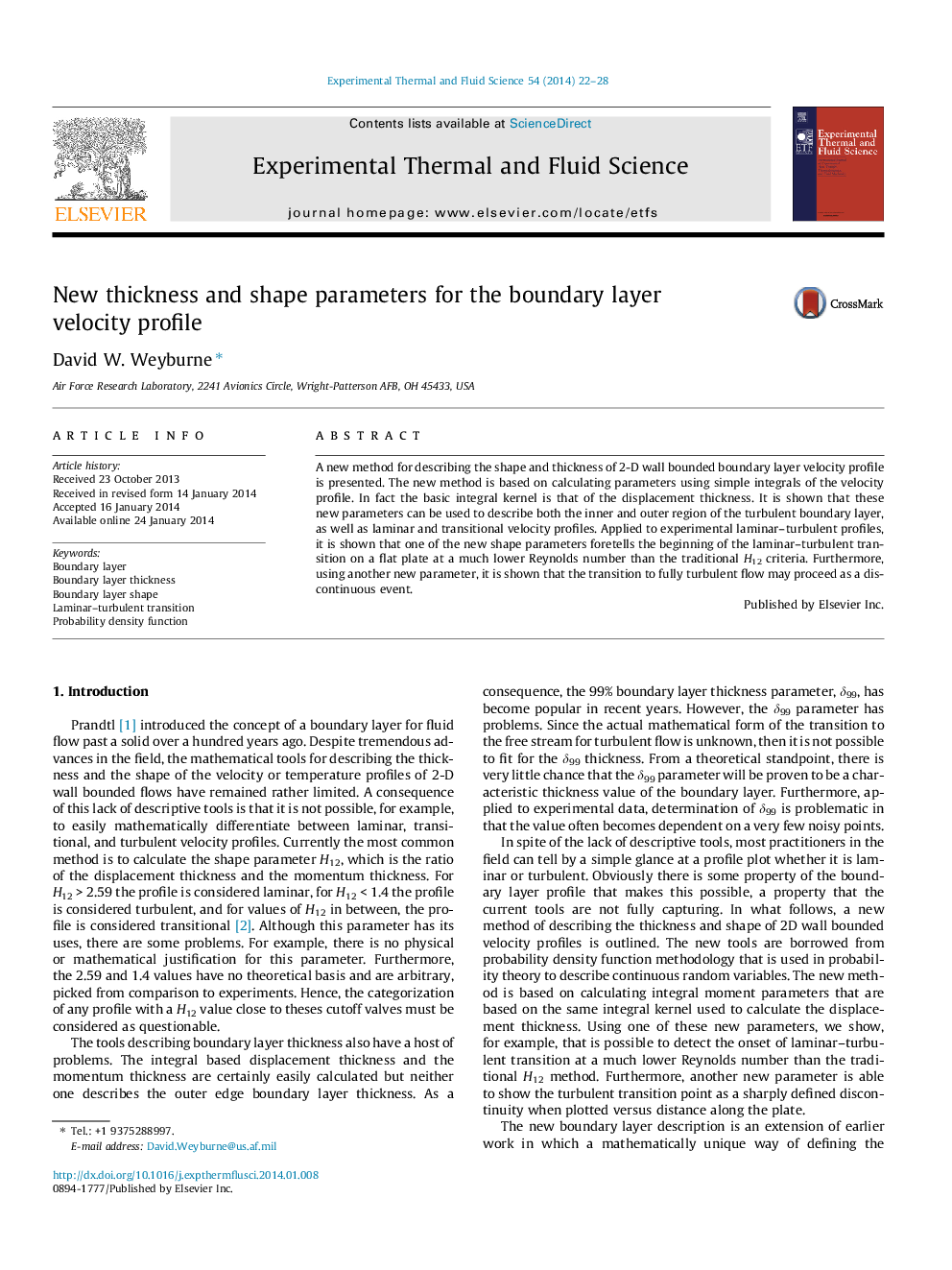| Article ID | Journal | Published Year | Pages | File Type |
|---|---|---|---|---|
| 7052502 | Experimental Thermal and Fluid Science | 2014 | 7 Pages |
Abstract
A new method for describing the shape and thickness of 2-D wall bounded boundary layer velocity profile is presented. The new method is based on calculating parameters using simple integrals of the velocity profile. In fact the basic integral kernel is that of the displacement thickness. It is shown that these new parameters can be used to describe both the inner and outer region of the turbulent boundary layer, as well as laminar and transitional velocity profiles. Applied to experimental laminar-turbulent profiles, it is shown that one of the new shape parameters foretells the beginning of the laminar-turbulent transition on a flat plate at a much lower Reynolds number than the traditional H12 criteria. Furthermore, using another new parameter, it is shown that the transition to fully turbulent flow may proceed as a discontinuous event.
Keywords
Related Topics
Physical Sciences and Engineering
Chemical Engineering
Fluid Flow and Transfer Processes
Authors
David W. Weyburne,
